Related Research Articles

The European Free Trade Association (EFTA) is a regional trade organization and free trade area consisting of four European states: Iceland, Liechtenstein, Norway and Switzerland. The organization operates in parallel with the European Union (EU), and all four member states participate in the European Single Market and are part of the Schengen Area. They are not, however, party to the European Union Customs Union.
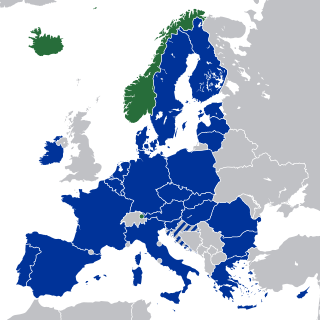
The European Economic Area (EEA) was established via the Agreement on the European Economic Area, an international agreement which enables the extension of the European Union's single market to member states of the European Free Trade Association. The EEA links the EU member states and three of the four EFTA states into an internal market governed by the same basic rules. These rules aim to enable free movement of persons, goods, services, and capital within the European single market, including the freedom to choose residence in any country within this area. The EEA was established on 1 January 1994 upon entry into force of the EEA Agreement. The contracting parties are the EU, its member states, and Iceland, Liechtenstein, and Norway. New members of EFTA would not automatically become party to the EEA Agreement, as each EFTA State decides on its own whether it applies to be party to the EEA Agreement or not. According to Article 128 of the EEA Agreement, “any European State becoming a member of the Community shall, and the Swiss Confederation or any European State becoming a member of EFTA may, apply to become a party to this Agreement. It shall address its application to the EEA Council.” EFTA does not envisage political integration. It does not issue legislation, nor does it establish a customs union. Schengen is not a part of the EEA Agreement. However, all of the four EFTA States participate in Schengen and Dublin through bilateral agreements. They all apply the provisions of the relevant Acquis.
The European Union has a number of relationships with foreign states. According to the European Union's official site, and a statement by Commissioner Günter Verheugen, the aim is to have a ring of countries, sharing EU's democratic ideals and joining them in further integration without necessarily becoming full member states.

This is a list of referendums related to the European Union, or referendums related to the European Communities, which were predecessors of the European Union. Since 1972, a total of 48 referendums have been held by EU member states, candidate states, and their territories, with several additional referendums held in countries outside the EU. The referendums have been held most commonly on the subject of whether to become a member of European Union as part of the accession process, although the EU does not require any candidate country to hold a referendum to approve membership or as part of treaty ratification. Other EU-related referendums have been held on the adoption of the euro and on participation in other EU-related policies.
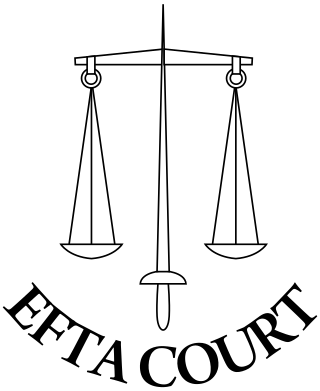
The EFTA Court is a supranational judicial body responsible for the three EFTA members who are also members of the European Economic Area (EEA): Iceland, Liechtenstein and Norway.
The freedom of movement for workers is a policy chapter of the acquis communautaire of the European Union. The free movement of workers means that nationals of any member state of the European Union can take up an employment in another member state on the same conditions as the nationals of that particular member state. In particular, no discrimination based on nationality is allowed. It is part of the free movement of persons and one of the four economic freedoms: free movement of goods, services, labour and capital. Article 45 TFEU states that:
- Freedom of movement for workers shall be secured within the Community.
- Such freedom of movement shall entail the abolition of any discrimination based on nationality between workers of the Member States as regards employment, remuneration and other conditions of work and employment.
- It shall entail the right, subject to limitations justified on grounds of public policy, public security or public health:
- The provisions of this article shall not apply to employment in the public service.

Switzerland is not a member state of the European Union (EU). It is associated with the Union through a series of bilateral treaties in which Switzerland has adopted various provisions of European Union law in order to participate in the Union's single market, without joining as a member state. All but one of Switzerland's neighbouring countries are EU member states.
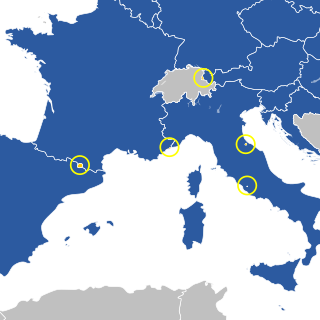
Currently, all of the European microstates have some form of relations with the European Union (EU).

The Citizens' Rights Directive 2004/38/EC sets out the conditions for the exercise of the right of free movement for citizens of the European Economic Area (EEA), which includes the member states of the European Union (EU) and the three European Free Trade Association (EFTA) members Iceland, Norway and Liechtenstein. Switzerland, which is a member of EFTA but not of the EEA, is not bound by the Directive but rather has a separate multilateral sectoral agreement on free movement with the EU and its member states.

The European driving licence is a driving licence issued by the member states of the European Economic Area (EEA); all 27 EU member states and three EFTA member states; Iceland, Liechtenstein and Norway, which give shared features the various driving licence styles formerly in use. It is credit card-style with a photograph and a microchip. They were introduced to replace the 110 different plastic and paper driving licences of the 300 million drivers in the EEA. The main objective of the licence is to reduce the risk of fraud.
Eight referendums were held in Switzerland during 2009. The first was held on 8 February on extending the freedom of movement for workers from Bulgaria and Romania. The next two were held on 17 May 2009 on introducing biometric passports and the "Future with complementary medicine" proposal. A further two were held on 27 September on increasing VAT and the introduction of public initiatives. The final three were held on 29 November on banning the construction of new minarets, exporting weapons and the use of aviation fuel taxation.

The Swiss identity card in its current form dates back to July 1994. It is in the form of a plastic photocard. It can be used as a travel document when travelling within European Free Trade Association or to the European Union, the European microstates, Georgia, Turkey, and on organized tours to Tunisia.

The visa policy of Ireland is set by the Government of Ireland and determines visa requirements for foreign citizens. If someone other than a European Union, European Economic Area, Common Travel Area or Swiss citizen seeks entry to Ireland, they must be a national of a visa-exempt country or have a valid Irish visa issued by one of the Irish diplomatic missions around the world.

In Switzerland, the federal popular initiative "against mass immigration" was a referendum that aimed to limit immigration through quotas, as it had been prior to the bilateral treaties between Switzerland and the European Union (EU) launched in 2002.

The Treaties of the European Union are a set of international treaties between the European Union (EU) member states which sets out the EU's constitutional basis. They establish the various EU institutions together with their remit, procedures and objectives. The EU can only act within the competences granted to it through these treaties and amendment to the treaties requires the agreement and ratification of every single signatory.

The United Kingdom (UK) was a member of the European Economic Area (EEA) from 1 January 1994 to 31 December 2020, following the coming into force of the 1992 EEA Agreement. Membership of the EEA is a consequence of membership of the European Union (EU). The UK ceased to be a Contracting Party to the EEA Agreement after its withdrawal from the EU on 31 January 2020, as it was a member of the EEA by virtue of its EU membership, but retained EEA rights during the Brexit transition period, based on Article 126 of the withdrawal agreement between the EU and the UK. During the transition period, which ended on 31 December 2020, the UK and EU negotiated their future relationship.
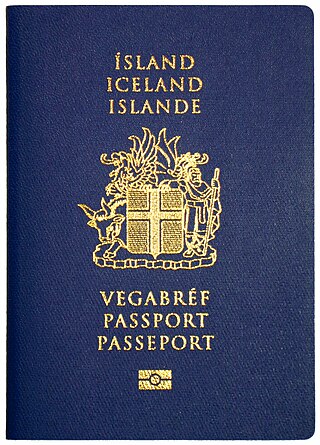
Passports of the EFTA member states are passports issued by the European Free Trade Association (EFTA) member states Iceland, Liechtenstein, Norway and Switzerland. EFTA is in this article used as a common name for these countries.
In British politics, the "Norway-plus model" was a proposal for a post-Brexit settlement, which the British government did not pursue. Proposed in November 2018 as an alternative to the Chequers plan, it would have consisted of membership of the European Free Trade Association (EFTA) and of membership of the European Economic Area (EEA) as an EFTA member state, combined with a separate customs union with the EU to create a trade relationship similar to that between the EU and its member states today, with the exception of the political representation in the EU's bodies. Michel Barnier, the EU's Chief Negotiator, has always said that a model that combined EEA/EFTA and a customs union was one that he would be happy to consider.
Several federal referendums were held in Switzerland in 2020, with voting on 9 February, 27 September and 29 November. Voting was also planned for 17 May, but was postponed due to the COVID-19 pandemic.
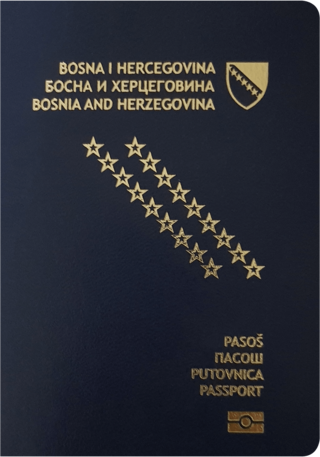
Passports in Europe are issued by each state individually, e.g. the Netherlands or United Kingdom. In general, passports issued in Europe either grant the holder the right of freedom of movement within the European Economic Area, to those that don't. The majority of European states are members of the European Union, and therefore issue EU passports.
References
- ↑ "Schulz: Switzerland faces many negotiations if it limits freedom of movement", European Parliament / News, retrieved February 10, 2014
- ↑ Council of the European Union, 8 Jan 2013: Council conclusions on EU relations with EFTA countries
- ↑ "When you join the EU you make a deal – Switzerland needs to remember that | John Springford". TheGuardian.com . 19 January 2015.